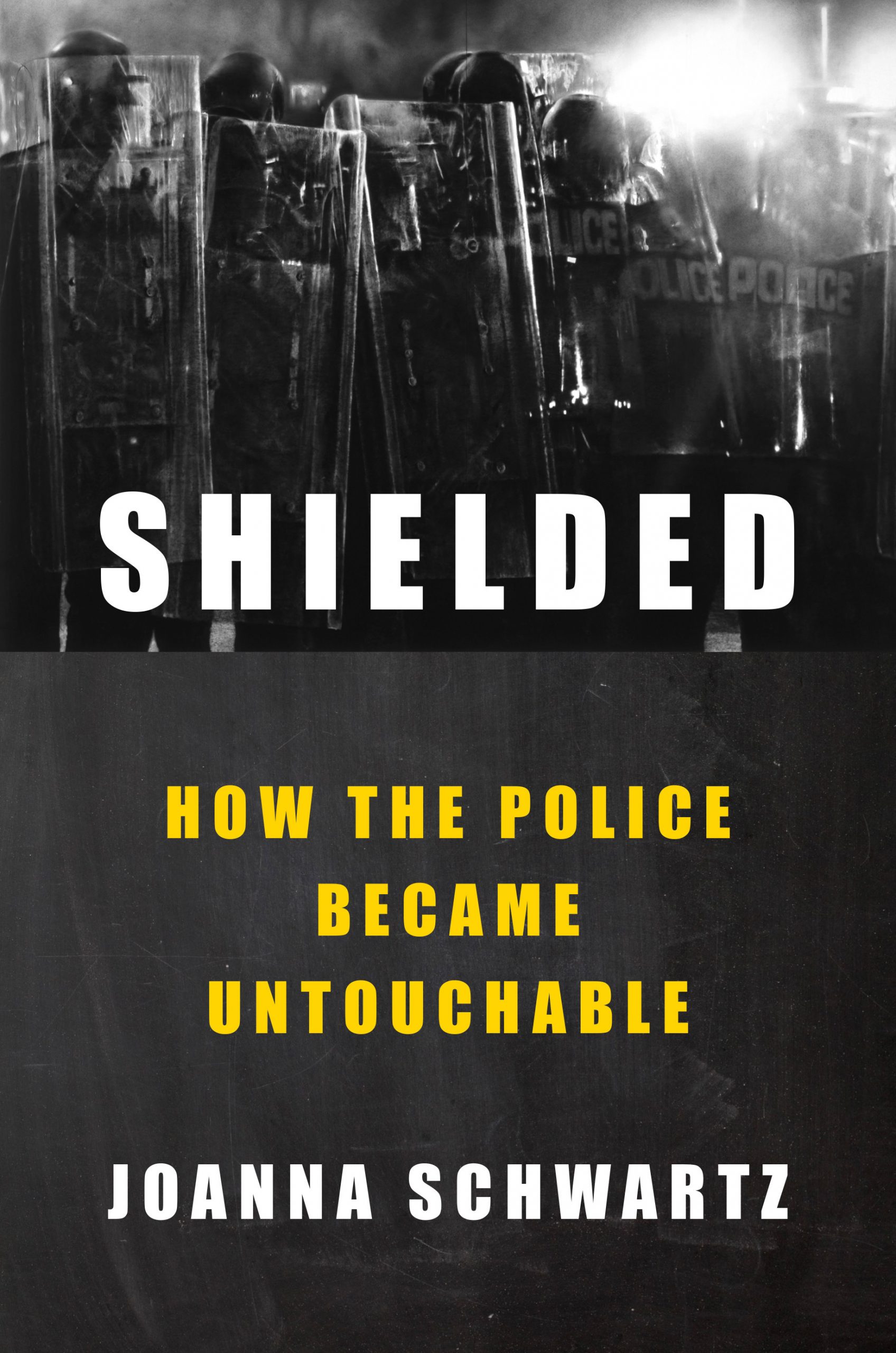Today, debates about our system of police accountability often focus, laser-like, on qualified immunity. In the weeks after George Floyd was murdered, in May 2020, protests were punctuated with handwritten signs that protesters held aloft calling for its end. These calls were echoed in bills introduced in Congress and statehouses to eliminate or scale back the doctrine.
Calls for an end of qualified immunity were matched in intensity by those who opposed reform. In August 2020, Indiana congressman Jim Banks introduced a bill to preserve qualified immunity in response to congressional efforts to eliminate the doctrine, threatening that ending it was simply “another way of saying abolish the police” because, without qualified immunity, “criminals would . . . open endless frivolous lawsuits against the officers who put them behind bars” and officers would be “forced to quit, because they couldn’t afford to serve any longer.”
In reality, neither the most optimistic nor the most dire predictions about civil rights litigation without qualified immunity are likely to occur. But ending qualified immunity would make things meaningfully better. People whose rights have been violated would not have their cases dismissed simply because the officer violated their rights in a way that had never previously been ruled unconstitutional. Courts would no longer issue qualified immunity decisions that send the message, as Justice Sonia Sotomayor has written, that police can “shoot first, think later.” The scope of constitutional protections would become clearer because courts would have to rule on whether rights protected by the Constitution were violated, and this added clarity would mean that police departments’ policies could be clearer as well. Civil rights litigation would become less costly, complicated, and time-consuming, because lawyers would no longer have to master the complexities of qualified immunity.
Ending qualified immunity wouldn’t usher in a golden age of police accountability. But it would help us move toward a system where people whose constitutional rights have been violated are better able to seek justice through the courts. Still, we won’t be able to assure that those people are compensated for their losses—or that those suits can deter future misconduct—unless and until we address the web of other shields protecting law enforcement and thus making it difficult for plaintiffs to succeed in these cases.
One of the biggest issues is that indemnification laws and policies mean that officers virtually never contribute to settlements and judgments entered against them. If officers aren’t financially responsible for settlements and judgments entered against them, how will they suffer consequences for their misconduct significant enough that they are deterred from doing something similar in the future? Some might argue that that’s what internal police discipline is for. But police departments rarely discipline their officers—making it clear that we cannot rely on the police to police themselves—even in cases where people win substantial settlements and judgments against them. I’m all in favor of improving police department investigations and discipline and more often firing officers who violate policy and the law. But until we do, we need a plan B.
More from our decarceral brainstorm
Every week, Inquest aims to bring you insights from people thinking through and working for a world without mass incarceration.
Sign up for our newsletter for the latest.
Newsletter
One option is to have officers pay a portion of the settlements and judgments entered against them. In June 2020, one month after George Floyd was murdered, the Colorado legislature passed a bill that does just this. Colorado’s bill requires that local governments indemnify their officers—unless they have been convicted of a crime—but also provides that a police officer found by their employer to have acted in bad faith can be obliged to pay 5 percent or $25,000 of the settlement or judgment, whichever is less. And if the officer shows they do not have the money to pay, the city must pay the officer’s share of the obligation.
I’d prefer a statute that does not exclude officers who have been convicted of crimes from governments’ indemnification obligations. In my view, if an officer violates someone’s rights while relying on their official authority, the government that gave them that authority should bear the costs. The carve-out in Colorado’s statute means that the women raped by the Houston police officer who was not indemnified—and was sentenced to life in prison—would still get nothing for their injuries. But the Colorado statute creates a more just system in many ways. Very few people would be denied indemnification because very few officers are actually charged with and convicted of crimes. A bright-line rule requiring indemnification unless the officer has been criminally convicted should prevent government lawyers from strategically using the threat that officers will be denied indemnification. And, except for the rare instances in which an officer is criminally convicted, the statute ensures that people whose rights have been violated will be compensated and that officers can be financially sanctioned when they act in bad faith.
Although more states should follow Colorado’s approach, local governments eager to advance this kind of reform don’t need to wait for their state legislatures to act. Two cities—Cleveland and New York City—occasionally require officers to contribute to settlements or judgments. These officers aren’t entirely denied indemnification. Instead, they are indemnified on the condition that they contribute a modest amount—$4,200 dollars, on average—to the settlements entered against them. We can debate whether the officers should have been required to contribute more money, or whether more officers should be required to contribute. But these local governments ensure that people whose rights are violated received most or all of the compensation they are awarded, while creating a financial sanction for some officers. And they didn’t have to go through the state legislative process to get it done.
To achieve deterrence, lawsuits must influence the behavior not only of the police officers directly involved in the cases but also of the police department officials who hire, supervise, train, and discipline those officers. Right now, there may be political pressures when a high-profile case hits the news. But cases that are less well known have hardly any impact at all. In part this is because police departments have very little skin in the game; settlements and judgments and legal defense fees rarely have any measurable impact on department budgets. It is also because police departments are under no obligation to learn from, or take action in response to, the suits that are brought against them and their officers.
How can we increase the impact of these suits on police department behavior? The Supreme Court could rule on future cases in ways that would make it easier for individuals to seek injunctive relief that would change police department policies and practices. But, given the near impossibility of that happening anytime soon, local governments should take advantage of the leverage they have to make police departments more attentive to the lawsuits brought against them.
A local government can, for example, tie the money to pay settlements and judgments—as well as the defense of these cases—to their law enforcement agency’s budget. During each year’s budgeting process, the department can get an allocation of money that reflects what they expect to pay that year in lawsuits; if they go over budget, they will have to reallocate money from elsewhere, and if they are under budget, they will have a surplus. Some agencies already budget and pay for lawsuits this way; although lawsuits account for only a small portion of these law enforcement agencies’ budgets, it does mean that when these agencies are making hiring, training, and supervision decisions that might lead to lawsuits, and when they are defending against those suits, they aren’t playing with house money.
Local governments can also require or pressure police department officials to learn from the lawsuits filed against them and their officers. Appointing an outsider—like the Office of the Inspector General for the New York City Police Department—to review police department practices and litigation trends across cases is one approach. Local governments can also require their police departments to review all of the lawsuits brought against them and assess trends across cases, or adopt certain policies, as a term of budget allocations or as a condition of indemnification. Some municipal liability insurers already do something like this: they condition continued coverage and reduced premiums on policies and practices that are expected to reduce liability costs. City and county councils cannot increase police departments’ premiums or cut off coverage the way insurers can, but they should be able to leverage the budgetary and other powers they have in similar ways.
I don’t promise that any one of these changes—or even all of them together—will get us the system of accountability we need. But they will get us closer.
Excerpted from Shielded: How the Police Became Untouchable. Copyright ©2023 by Joanna Schwartz. Reprinted with the permission of Viking.
Image: Benjamin Lehman/Unsplash


